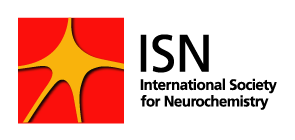St. Louis is in the central part of the US and home to several universities conducting top-notch neuroscience research: Washington University in St. Louis, University of Missouri St. Louis, and Saint Louis University. Students and postdocs from Washington University in St. Louis were interviewed for this article.
Early career scientists are incredibly proud of their institution. The neuroscience graduate program possesses a cross-disciplinary structure that allows students to join over 150 labs across more than 17 departments. A new 600-million-dollar neuroscience building recently broke ground. It is highly anticipated and representative of the substantial investments the university has made towards ensuring it remains competitive in the field of neuroscience.
“The neurosciences program at Washington University has a longstanding history of excellence. It is where Erlanger first measured nerve conduction velocity and its relation to axon diameter. It is where Levi-Montalcini, Cohen, and Hamburger discovered the first neuronal trophic factor, nerve growth factor. Continued innovation and expansion of our program also gave way to the development of Positron Emission Tomography (PET) by Ter-Pogossian, Phelps, and Raichle.”
-Allison Soung, Ph.D. Candidate
Across the board, the most important reasons young scientists chose their mentors were: lab environment, mentorship style, and the flexibility to explore their own interests. Other important aspects were the PI’s influence in the field, a track record of successful mentorship, research topic, lab resources, and commitment to diversity in science. Early career neuroscientists are excited to work with cutting-edge techniques they expect to be important in the future. All acknowledge the importance of bench skills, some clinical knowledge, and designing your own experiments for continuing along the academic track. Not all expect to continue in academia, but they do expect that written and oral communication, asking logical questions, determination, patience, flexibility, and networking will factor into future careers.
“One of the skills that I would like to obtain is how to write code and analyze / interpret big data sets. Many fields, especially neuroscience, are moving towards utilizing big data experiments such as single cell RNA-seq which has helped create a more in depth understanding of brain circuitry and cellular diversity.”
-Megan Bosch, Postdoctoral Fellow
Science is not without its challenges. Knowing how to best split one’s time between work and home responsibilities such as childcare was a common difficulty. Feelings of isolation and the pressure of scientific scrutiny of your work are managed by leaning on peers, multiple mentors, and outside friendships. Other challenges included deciding which scientific question to pursue, ensuring your work does not overlap with others in the lab, hitting a wall where nothing seems to work, and working in a big lab.
“Some difficulties I face include finding balance between lab and personal life. During PhD training, there always seems to be more experiments to be done, a never-ending pile of data to be analyzed, and papers that need to be written and edited. There are no well delineated starting and stopping points for each day or week.”
-Sindhu Manivasagam, Medical Scientist Training Program
It is not all doom and gloom though. Having a flexible schedule does help with work-life balance. Opportunities for leadership positions in various committees and interest groups helps develop “PI skills” in bringing together and meeting other scientists. Getting others interested in your research and the potential for something translatable to come out of it that makes a difference in someone’s life is a powerful motivator. Everyone interviewed has also taken time to inspire the next generation of scientists through events like the annual Brain Carnival at the St. Louis Science Center. The majority are mentoring undergraduate students, often from underrepresented groups. Several worked with local underserved high school students in both the classroom and the lab. Some are members of group Brain Discovery that teach and give neuroscience demonstrations to an elementary school class once a week for six consecutive weeks in hopes of inspiring them and breaking stereotypes.
Postdocs often transitioned into their new lab after attending a talk or meeting the PI at a conference. Everyone acknowledged that an international society’s conference presents a unique opportunity for exposure to new information, new perspectives, and collaborations that otherwise would not have occurred. Professional development opportunities were also important aspects, although not everyone has applied to take advantage of them. Being a part of a diverse global community that is focused in scope presents a unique advantage.
“I think making learning opportunities available to trainees to teach new concepts or skills is a big step towards this goal…I would also like to see more funding and incentives for trainees who participate in collaborations with trainees at other institutions.”
-Celia McKee, Ph.D. Candidate
Right now, labs are just starting to open back up at 30% capacity due to COVID-19 restrictions. Before the lockdown, some people rushed to collect data to analyze at home. Those that could not come into lab leaned on lab mates to help take care of cultures and mice. For those still going in, doing regular lab maintenance kept them sane. Many are opening their “to-read” folders for the first time and writing review papers and grant proposals. Unfortunately, the opportunities to act as a mentor to undergraduate and high school students have been cancelled by the University.
This student sums up the COVID-19 situation nicely:
“COVID-19 has completely changed my work dynamic. My work does not consist of any computational work so there’s only so much ‘work’ I can do from home. Now my ‘work’ consists of reading and writing—which is good because it allows you to think a little more and come up with more sophisticated/elegant experiments—but it gets old. At some point, you want to just go in and test some ideas.”
-Lorenzo Lones, Ph.D. Candidate
Wishing you the best as we all return to the lab in the near future.
